
Six things to look out for when buying a second-hand tent
1 September, 2022
You have decided that you will go camping with a tent this summer, for the first time in ages or perhaps for the very first time. In that case, a second-hand tent is a good option. Tents can last for a long time and a second-hand tent is usually a lot cheaper than a new one. But what should you look out for when buying a second-hand tent? We have made a list for you.
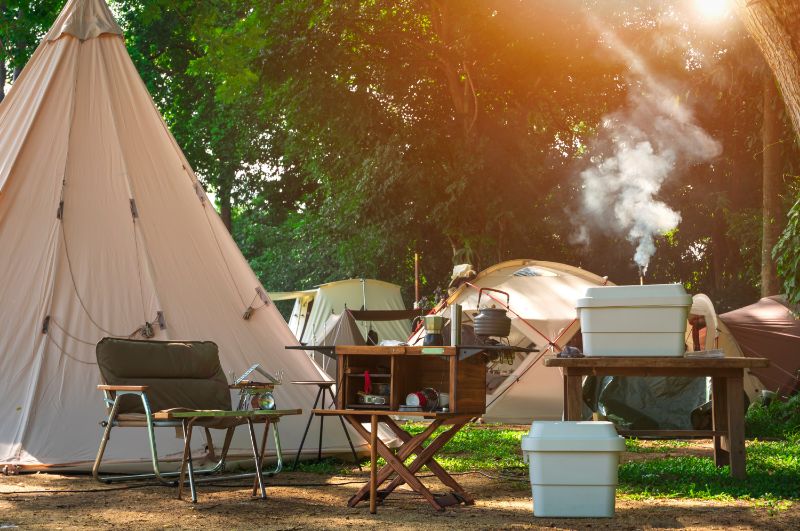
Camping with a teepee tent
1. Know what type of tent you want to buy
There is a vast range of tents available and the search for that perfect tent can be overwhelming at times. It is useful to know what you want. Ask yourself the following questions to create a clear search query.
- How big should the tent be?
That depends on the size of your travel group and the purpose of your trip. If you are driving to a campsite where you will stay for several days, it is nice to have a larger tent. Then you will have enough room on rainy days, when you want to sit inside. Are you going on a cycling or a canoeing holiday, then a smaller tent is more practical. - Which model of tent do you want to buy and what kind of layout would work for you?
There are many different types of tents to choose from. Tents with one or two poles, pyramid tents, dome tents, tunnel tents and tents that are combination of the above. Some tents consist of one room, others have an awning /living area and one or more sleeping cabins. And there are tents with the sleeping cabins next to each other at the back of the tent but also tents where the sleeping cabins are at the sides of the tent.
- Where will you be going on holiday?
When you know where you will be going on holiday, you can consider the choice of the tent material. Cotton tents are really nice in warmer areas. They breathe much better and you won’t boil when the first rays of sunshine hit in the morning. Polyamide (nylon) tent canvas is suitable for rainy regions. The fabric dries quickly and is easy to clean. - Will you be staying at the same place for a while or touring?
Some tents are quicker and easier to set up than others. If you will be camping at several campsites, it’s handy to choose a tent that you can set up and take down easily. If you will be staying at the same campsite for a while that is less important. In that case, you may prefer a tent that has more space for your luggage. If you will be touring and have to carry your tent, for example during a walk or cycling trip, you would be better off with a polyamide tent. Those tents are lighter than cotton tents. - Do you want a tent with poles or are you looking for a second-hand inflatable/blow up tent?
Blow up tents do not have poles, but air tubes you use to pump them up. The advantage is that you do not have to take heavy poles with you and the tent can be set up quite quickly. The disadvantage is that inflatable tents are reasonably heavy, the tents are often quite expensive, and they are difficult to repair should the tent break. If you choose to get an inflatable tent, make sure you buy a good pump. You cannot set up the tent without one. A tent with poles is often more difficult to set up, but often much lighter. If a pole breaks, you can easily buy a new one from a camping shop. Furthermore, tents with poles are cheaper and there is a more choice than with inflatable tents.
The better you know what kind of tent you want to buy, the easier the search. Then you can search specifically for your perfect tent.
2. Buy a second-hand tent from an individual or in a shop
You can buy second-hand tents from many places. There is a wide range of tents available on Marktplaats (Dutch website where you can buy second-hand items from individuals). There, you can find reasonably new tents for a good price. Often, the seller no longer wants to camp in a tent or has bought a different model. Then there’s a big chance they will want to get rid of the tent quickly and you can negotiate a good deal that you will both be happy with. Before you contact the seller, find out information about the type of tent and read reviews. It is also useful to look up the new price of the tent. Then you will know whether the seller is asking a fair price. Tents are also regularly offered for sale on Facebook.
The major risk of buying from an individual is that you have no guarantee on your purchase. If it is a fairly new tent, it may still fall under the purchase guarantee. If that is important to you, ask for the original receipt. There are camping shops where you can buy second-hand tents, they often give you a guarantee. Of course, you can also let people in your surroundings know that you want to buy a tent. Who knows, they may know someone who wants to sell a tent.
3. Check the condition of the tent
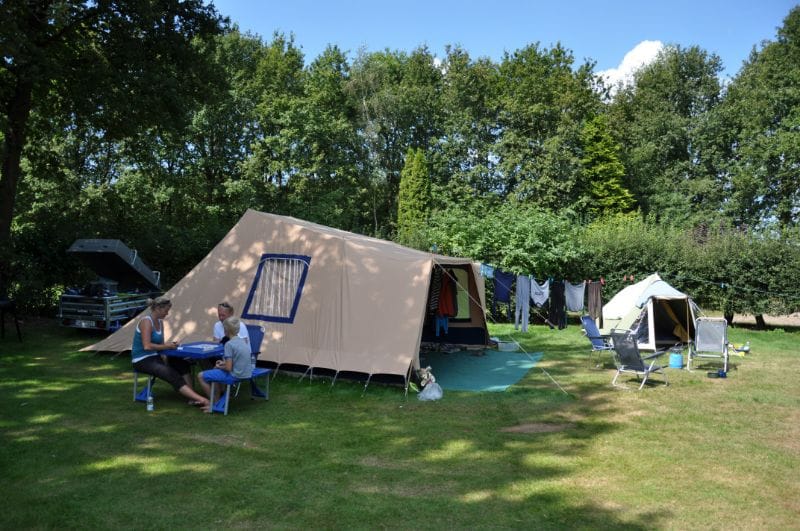
Camping in a tent with the whole family
Before buying a second-hand tent it is important to check the condition of the tent. You want to be sure there are no hidden defects. Stains on the canvas are often a sign of leaks in the tent canvas. When buying a second-hand tent, ask how many weeks of camping the tent has been used for and not when the tent was purchased. A tent that has been used intensively won’t last as long as a tent that has been stored in the attic. You can also ask for the official receipt.
4. Set up the tent before you take it home
Set up the second-hand tent before you buy it. You will soon see if the tent is complete and whether all poles are present and intact. When the tent is standing, you will be able to see whether it meets all your requirements. You will also quickly find out whether the tent canvas is damaged or stained. Check all stitching and seams, are they still intact? Furthermore, it is also important to check if all the zips are working. Replacing a tent zip is expensive. We recommend that you only buy an undamaged, complete second-hand tent. You can easily buy small accessories, such as tie ropes and pegs from a camping shop. You can set up the tent in the garden, a playing field or at a ‘day campsite’, which is a place in the countryside where you can pitch for a day.
5. Check the tent is big enough
You won’t be the first camper to discover your air mattress doesn’t fit in the tent. Consider the space when buying a tent. Before you leave, it’s a good idea to test whether your air mattresses or sleeping mats actually fit in the tent. If you want some space in the tent, we recommend buying a tent suitable for at least one person more than the travelling party you will be camping with. So if you are going camping with four people, you could opt for a five-person tent. If you have to carry the tent yourself, you are best choosing the smallest possible tent because they are lighter.
Keep in mind that some tents only have a sleeping cabin while others have a large living space, which is handy on rainy days. Choose a tent that suits your camping wishes. Whatever you do, keep in mind that not only yourself but also your luggage has to fit in the tent (or car). You will have more space for your luggage and other camping equipment in a larger tent.
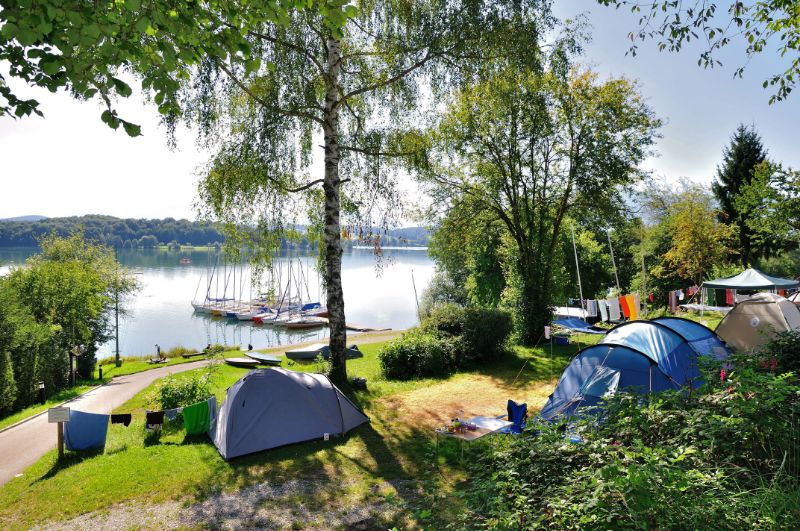
Camping with a new or second-hand tent?
6. The right time to buy a second-hand tent
The demand for tents is highest in the spring and summer. During those months people want to buy new camping equipment, so they can take it on holiday that same year. That means that the prices of the tents are at their highest during this period. Prices are lower in autumn and winter when the demand for tents is lower.
Tent campers who have bought a new model or have switched to another form of camping equipment often want to sell their tent as quickly as possible. That could work to your advantage. It is only a shame that you will have to wait a long time before you can go on a camping holiday. However, winter camping is also an option.
Renting a tent
If you are not totally convinced about buying your own tent, you could start by renting a tent at a campsite. They are usually more luxurious than your own tent. The selection ranges from bungalow tents with a stretcher to luxury glamping tents with a shower, toilet and complete kitchen. That way, you will be able to experience the atmosphere at the campsite. Who knows, you may go with your own tent next time.


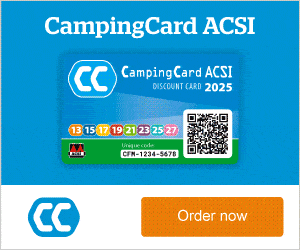
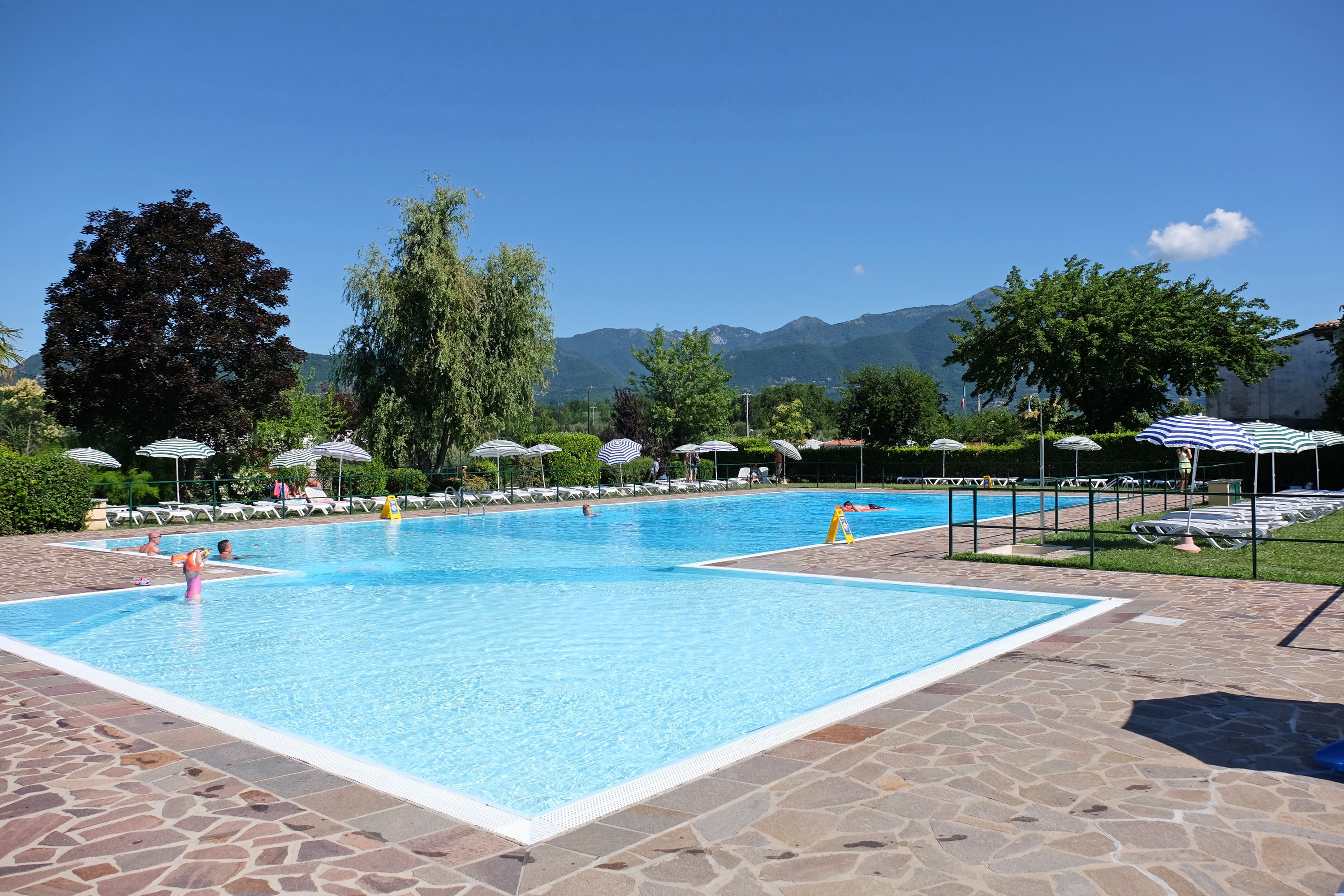
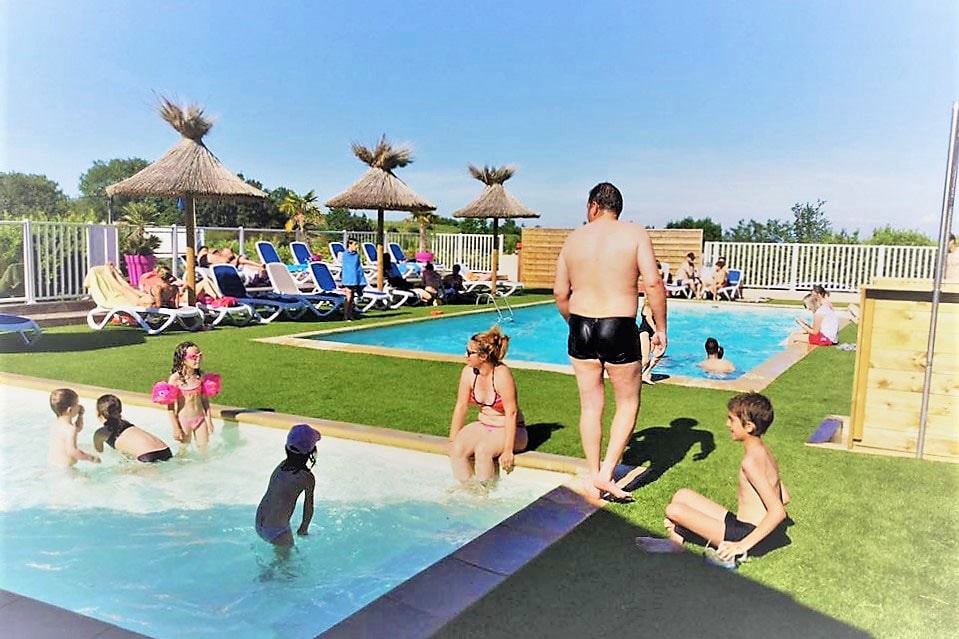
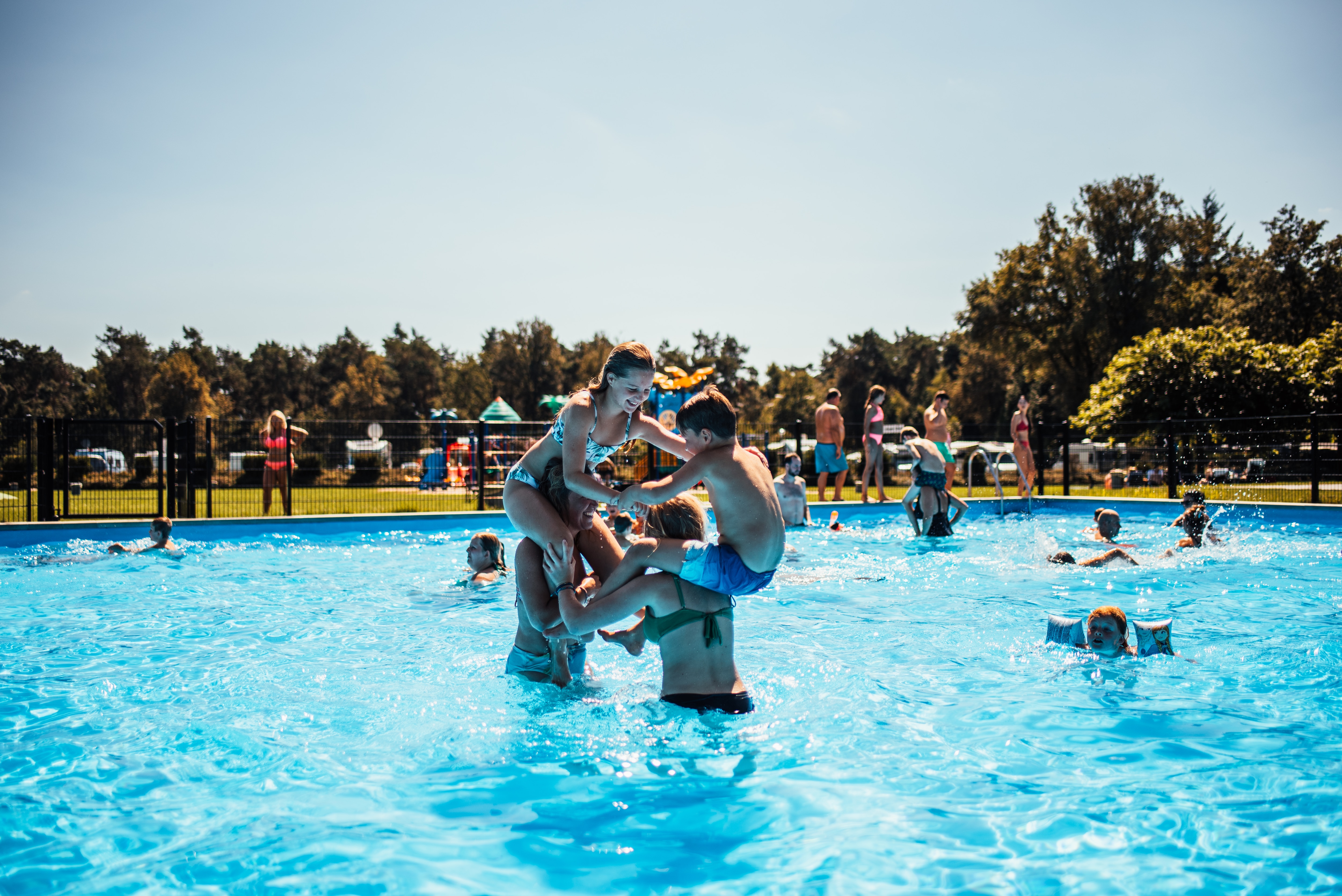
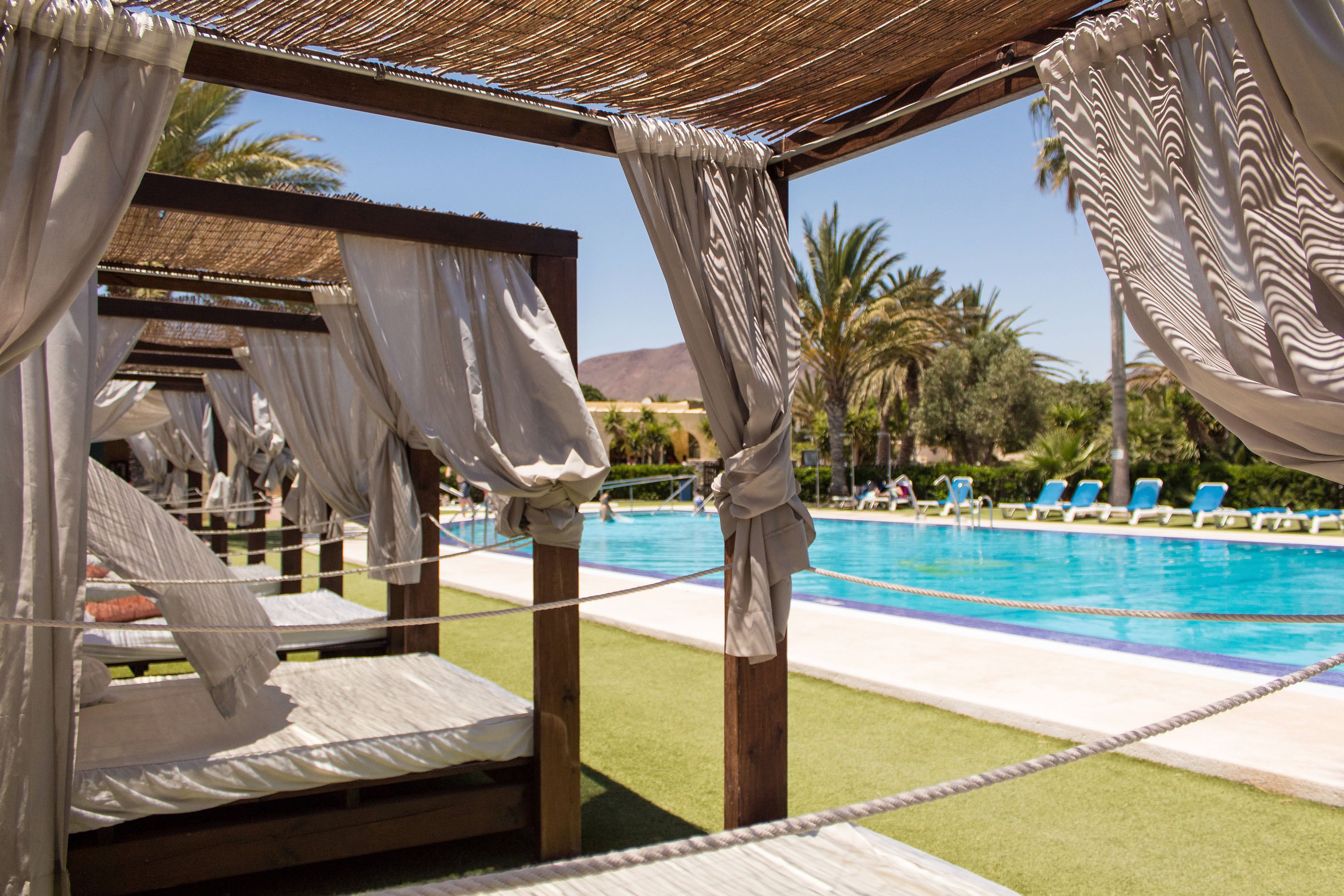
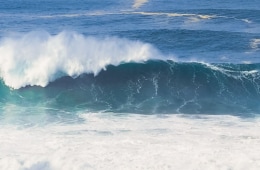
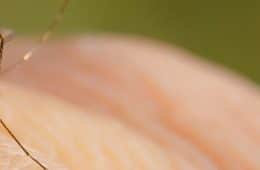






Latest comments